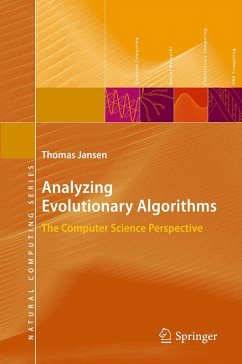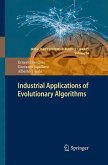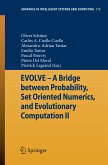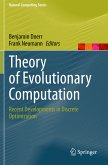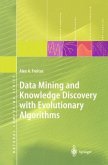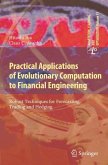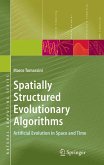In this book the author provides an introduction to the methods used to analyze evolutionary algorithms and other randomized search heuristics. He starts with an algorithmic and modular perspective and gives guidelines for the design of evolutionary algorithms. He then places the approach in the broader research context with a chapter on theoretical perspectives. By adopting a complexity-theoretical perspective, he derives general limitations for black-box optimization, yielding lower bounds on the performance of evolutionary algorithms, and then develops general methods for deriving upper and lower bounds step by step. This main part is followed by a chapter covering practical applications of these methods.
The notational and mathematical basics are covered in an appendix, the results presented are derived in detail, and each chapter ends with detailed comments and pointers to further reading. So the book is a useful reference for both graduate students and researchers engaged with the theoretical analysis of such algorithms.
Dieser Download kann aus rechtlichen Gründen nur mit Rechnungsadresse in A, B, BG, CY, CZ, D, DK, EW, E, FIN, F, GR, HR, H, IRL, I, LT, L, LR, M, NL, PL, P, R, S, SLO, SK ausgeliefert werden.
Hinweis: Dieser Artikel kann nur an eine deutsche Lieferadresse ausgeliefert werden.
"This book focuses on the theoretical analysis of evolutionary algorithms as one of the randomized algorithms in computer science. ... This book serves as a very useful source for researchers who are interested in exploring these challenging topics. ... I highly recommend it for anyone who is looking to explore both the theoretical aspects of evolutionary algorithms and the practical aspects of designing more efficient algorithms." (R. Qu, Interfaces, Vol. 44 (4), July-August, 2014)
"'Analyzing evolutionary algorithms' is a beautiful book that has a lot to offer to people with different backgrounds. It not only explains evolutionary algorithms and puts them into relationship with other randomized search algorithms, it also provides detailed information for specialists who want to understand in depth how, why, and when evolutionary algorithms work. ... The book is complemented by an extended list of references and suggestions for further reading." (Manfred Kerber, zbMATH, Vol. 1282, 2014)
"This textbook provides a self-contained introduction into this exciting research subject. It can be used as a course text for advanced undergraduate or graduate levels, and it is at the same time a much welcome reference book for active researchers in this area. ... Each chapter is therefore complemented by a remarks section that briefly summarizes the advances in the respective topics. In many cases pointers are given to recent research reports." (Carola Doerr, Mathematical Reviews, October, 2013)
"Analyzing Evolutionary Algorithms is aimed at evolutionary computation researchers and enthusiasts who are interested in the theoretical analysis of evolutionary algorithms. It will be accessible to post-graduates and advanced undergraduates in mathematics and/or computer science, and generally anyone with a working background in discrete mathematics, algorithms, and basic probability theory. Theoreticianswill benefit from this book because it works well as a convenient reference for essential analytical strategies and many up-to-date results." (Andrew M. Sutton, Genetic Programming and Evolvable Machines, Vol. 14, 2013)

